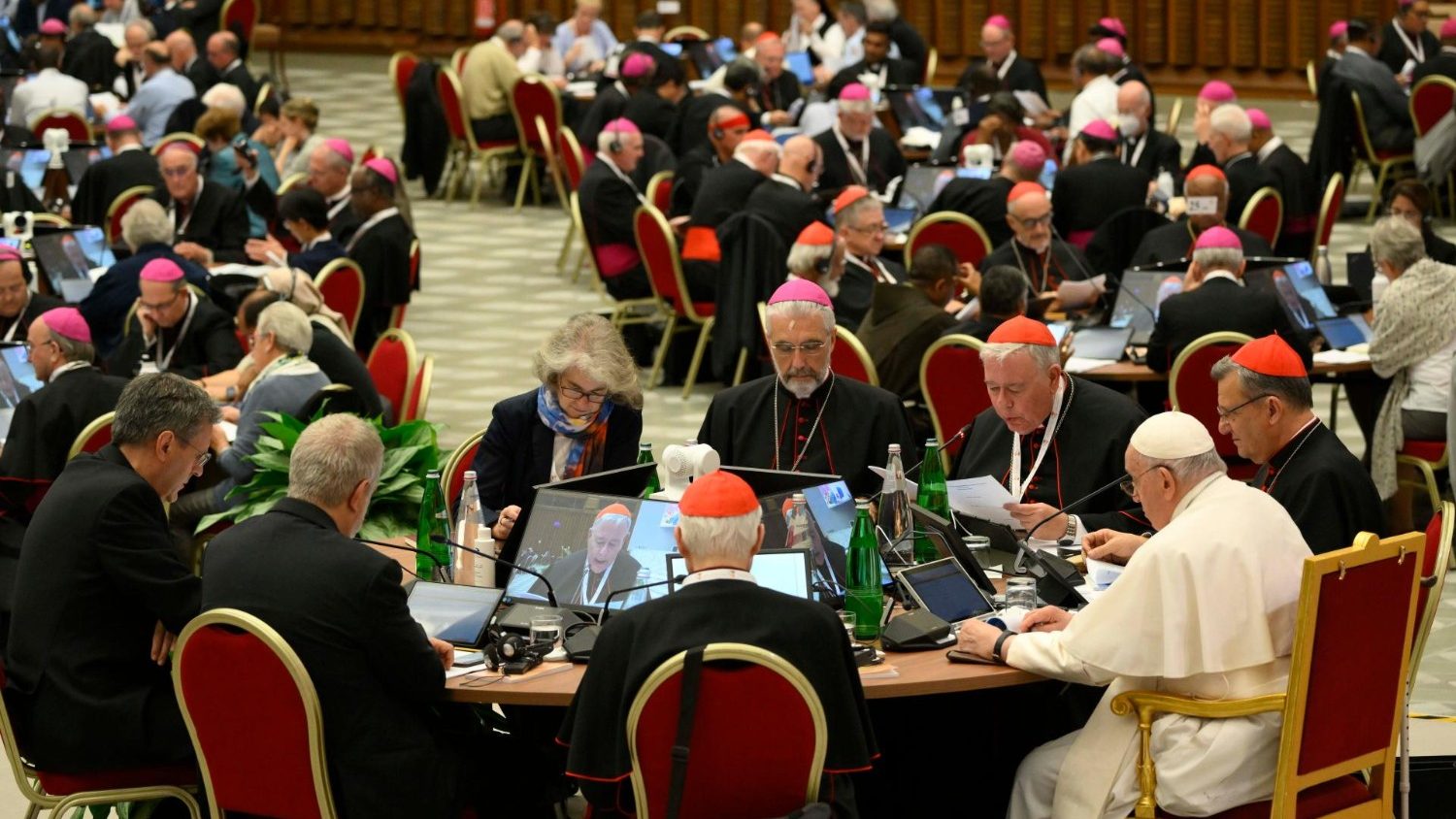Synod: transparency and accountability as methods for the Church too
The Instrumentum laboris presented today ahead of the second session of the Assembly scheduled in Rome in October proposes that anyone in a position of authority at every level in the ecclesial community should give an account of how they carry out their pastoral plans. Enhancing the role of women is among the foundations of synodality, but the Synod will not address the question of women's access to the diaconate.
Vatican City (AsiaNews) – The Second Session of the 16th Ordinary Assembly of the Synod will be held from 2 to 27 October in Rome to draw conclusions from the path that Pope Francis set out three years ago involving the Churches of the whole world to reflect on how to live together in communion, participation, and mission.
One of the most interesting proposals on how to exercise synodality in the Instrumentum laboris says that the synodal Church "requires both a culture and practice of transparency and accountability,” not only on matters like sexual abuse and financial scandals.
There is a need for those in authority within the Church to periodically report to the community on how they carry out their “pastoral plans, methods of evangelisation, and how the Church respects the dignity of the human person, for example, regarding the working conditions within its institutions.”
Starting with the Synthesis Report drafted at the end of the first session, held in the Vatican in October 2023, the Synod passed to communities the methodological question of how to be a missionary synodal Church.
New insights reached the secretariat from various sources which spawned the Instrumentum laboris, a long document in 112 points that will form the basis for discussion at the October assembly, drafted together with the contributions from the world meeting of "Parish Priests for the Synod”.
In the meantime, Pope Francis last February entrusted ten emerging issues on which broad consensus had already emerged in the first session to ten study groups tasked to elaborate detailed proposals to be presented to the pontiff by June 2025.
The ten areas on which the commissions are reflecting are: relations between the Eastern Catholic Churches and the Latin Church; listening to the cry of the poor; the mission in the digital environment; the ministry of the priesthood; specific ministerial forms of the laity; relations between bishops, religious and ecclesial groups; the episcopal ministry (criteria for the selection of candidates, legal function, nature and conduct of ad limina visits); the role of nuncios; synodal methodologies for shared discernment on controversial doctrinal, pastoral and ethical issues; the reception of the fruits of the ecumenical journey in the People of God.
Beyond these specific issues, for which no definitive answer will come from the October assembly, the Instrumentum laboris focuses on the foundations and dynamics of synodality. Enhancing the role of women in the Church is among the central issues.
The text emphasises how in too many cultures “the presence of machismo remains strong,” and calls for “a wider participation of women in the processes of ecclesial discernment and all stages of decision-making process” with “wider access to positions of responsibility in Dioceses and ecclesiastical institutions.”
As for the issue of their admission to the diaconate, the Instrumentum laboris recognises that the consultation confirmed the existence of different opinions; for this reason, it will not be discussed at the synodal assembly, but theological reflection on the matter will continue.
Another important issue, stressed in the third part of the document, is the question of the places of synodality, which also touches the topic of inculturation.
“The pluralism of cultures and the fruitfulness of the encounter and dialogue between them are a condition of the Church's life, an expression of and not a threat to its catholicity," reads the Instrumentum laboris.
One wonders, for example, how a synodal Church will look like in megacities where “it takes only a few underground or subway stops to cross the boundaries not only of the Parish but of the Diocese”.
In this context, ecclesial realities are called to be "roads on which to journey together", with pastoral action aimed at "encounter[ing] every man and woman" wherever they are.
This also requires a qualitative leap from the local Churches, called to exchange gifts in a true ecclesial communion.
24/10/2019 17:56
05/10/2023 19:36
24/05/2021 20:04







.png)










